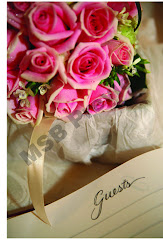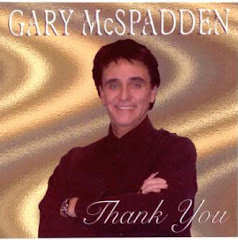Chip MacGregor is blogging about Writer Conferences. I have a strong interest in the subject and urge all potential writers to use them as an important resource. Chip says;
http://chipmacgregor.com/
June 14, 2009
A Dozen Questions about Writing Conferences
I've been going over the questions people have sent me recently, and several have asked about writing conferences...
1. Dylan asked, "Are you a fan of writers' conferences?"
I'm a huge fan. I think writing conferences are a great place to network with other writers, learn about the craft, and meet people in the industry.
2. Sarah wants to know, "Is a writing conferernce worth the cost? What should I get out of it?"
The value of a conference depends on your expectations. If you're going to meet people in the industry and get connected, you'll probably find it worthwhile. But if you're going with the thought that "an agent will have a ten-minute conversation and want to sign me" or "an editor will take one look at my proposal and offer me a contract," you're probably going to be disappointed. I suggest an author sit down and look at the list of faculty and the list of workshops being offered. If you need craft help, go to a conference with really strong craft seminars. If you are most in need of talking with agents, look for one with a long lineup of literary agents. With travel, meals, hotel, and the registration fee, you could be spending more than a thousand bucks on a big conference -- that's a lot of money, especially if you're a writer who isn't making a thousand dollars a year via writing. So you've got to think about what your expectations are and how well the conference meets them. A little research can go a long way.
3. Veronica wrote this: "I'm planning to attend a conference in September, and they offer appointments with agents and editors. I'm not really ready for an agent -- should I sign up to meet some anyway?"
That depends on what your goals are. Sometimes you'll sign up with an editor just to let them see your work and get their perspective on it. If you're looking for direction in your writing, make that clear at the outset, so that you can get the most out of your fifteen minutes. You might sign up to talk with an agent about the industry -- again, give them some sense of your expectation in the meeting. But be aware -- sometimes an editor or agent will have limited times available, and we hate it when somebody is clearly wasting our time. I'll offer two examples... I don't represent children's books, poetry, or sci-fi novels. Ten minutes of research would reveal that to a prospective author. Yet I regularly have morons pitch me their sci-fi children's poetry crap during agent appointments. As though they expect I'm suddenly going to see the light, grasp their proposal, and shout, "Hallelujah! Poetry I love!" Geez. That's what you call "getting off on the wrong foot." A couple years ago, at a conference I did as a favor to the director, I could only be there for an afternoon. They made a big point of stating "Chip is here just for a couple hours, and we'd appreciate it if you would leave those appointment times for experienced writers." So who was my first appointment? A woman with her fourteen-year-old daughter, who began by saying, "I don't really have anything to talk with you about, I just wanted my teenage daughter to meet you." (And I was polite. I figure seriously stupid people require calmness in order to keep from getting violent.)
4. Danny asked, "What do you say at a meeting with an agent?"
That depends on you and the agent. If you were meeting with an agent who was a longtime editor like Janet Grant, you might ask about the salability of your work, or talk about your craft. If you're talking with an agent who is known for industry stuff, like Steve Laube, you might ask about how your idea fit with publishing houses. If you were meeting with me, you might ask career questions. In other words, do your homework. Be ready to talk about yourself and your book. Be clear about what you're hoping to get out of the meeting. Allow the agent to respond to your questions. Don't push too hard. Understand that agents are just people doing their jobs, so they may not have fabulous answers to every question you ask. If you're serious about writing, then you have to treat a conference as a business trip, not just a mini-vacation.
5. Sally said this: "I've met you at conferences before, and you never seem to take material with you. Why don't you take proposals?"
It gets worse, Sharon... I usually don't even take business cards. Why? Because I don't want to have to fill my suitcase with piles of dead trees. If I find your idea interesting, I might ask you to email it to me. But understand that I frequently say "no thanks" to ideas pitched to me at conferences. (I feel a need to say that, since I find some editors are total weenies and seem to tell everyone to "send it to me." That way they can just reject stuff with a faceless email.) Look, if I'm not crazy about the idea, or it's not a fit, or I don't think the person can write, I've got no reason to take their proposal. Or their card or bookmark, for that matter. I see hundreds of proposals each year, and I might take on a handful of clients. Do the math.
6. Mike wrote: "At last year's conference, I had a bunch of people ask to see my proposal... but no one made me an offer. Am I wasting my time at conferences?"
Not the way I look at it. I figure having people say "send it to me" is better than having them say "get lost." So it didn't sell -- at least it got looked at. Get some people to help you improve it, and show it to them again. (Or ditch the old idea and move on to something better.) Remember, for most people getting published is a process. You start out taking baby steps, and move toward learning how to write as an adult in the marketplace.
Overcome Your Challenges
4 hours ago








No comments:
Post a Comment